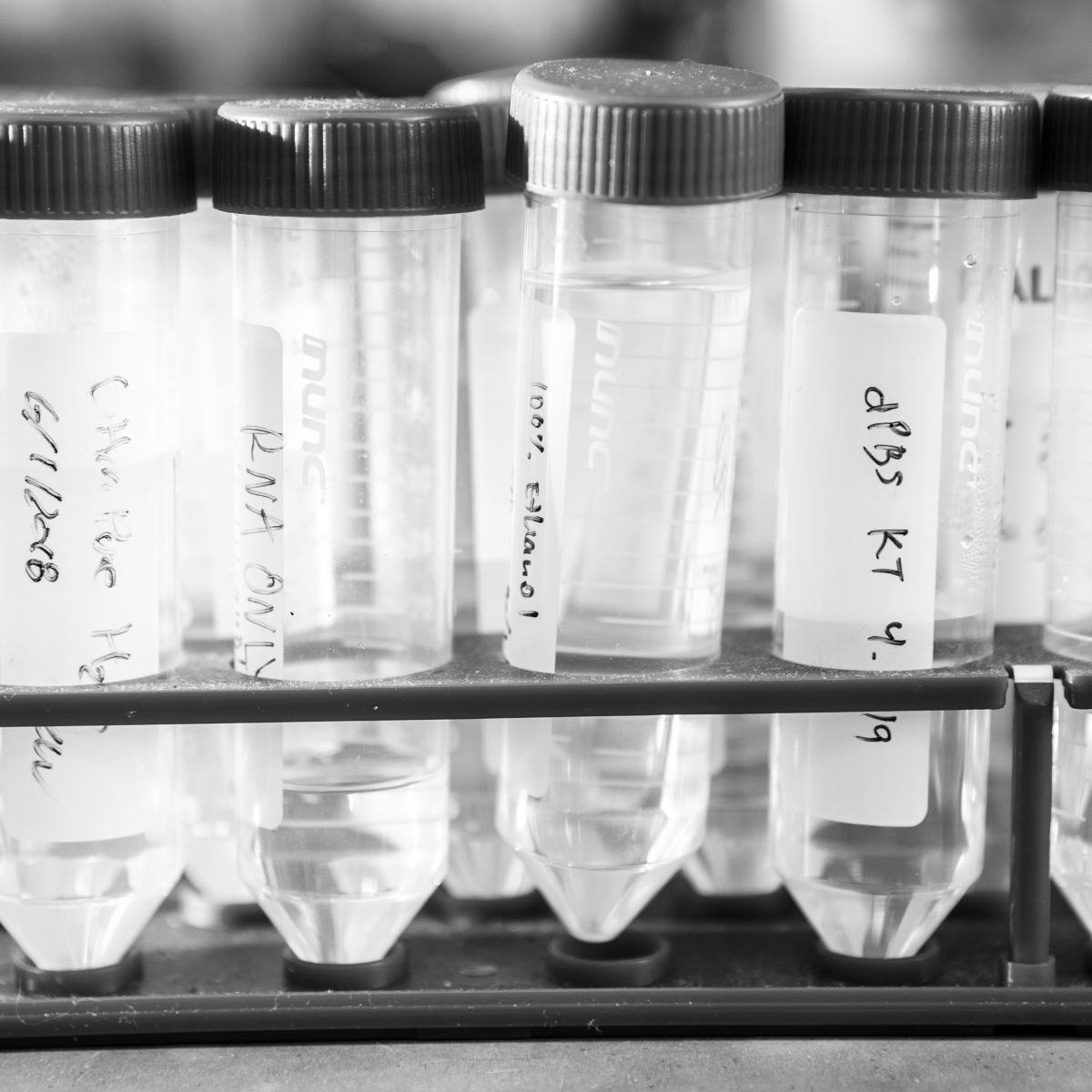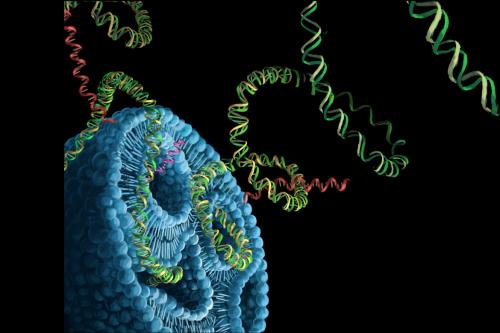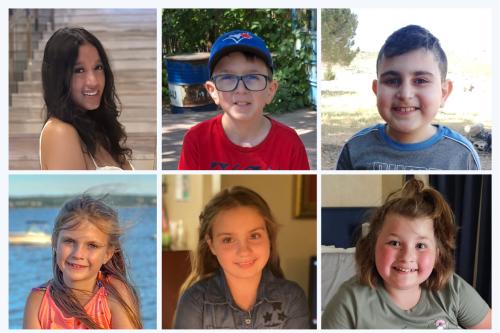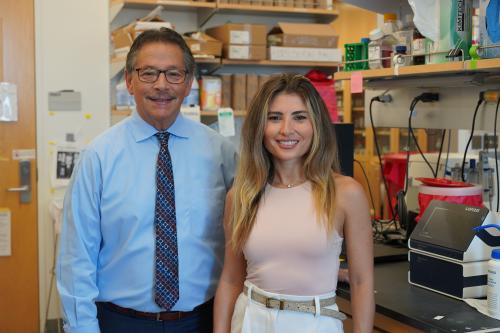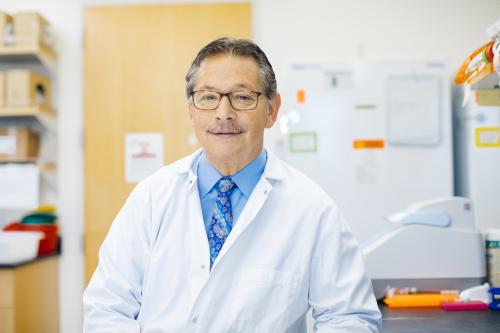
Donald B. Kohn, M.D.
- Distinguished Professor, Microbiology, Immunology and Molecular Genetics
- Distinguished Professor, Pediatrics, Hematology/Oncology
- Distinguished Professor, Molecular and Medical Pharmacology

Donald B. Kohn, M.D. is a pediatric bone marrow transplant physician who focuses on developing blood stem cell gene therapies for genetic disorders including sickle cell disease and primary immunodeficiencies. While advancing these therapies through clinical trials, he seeks to improve their efficacy and adapt them to treat a broader range of diseases and benefit more patients.
Kohn is credited with the development of one of the first successful blood stem cell gene therapies targeting adenosine deaminase–deficient severe combined immunodeficiency, or ADA-SCID. Kohn’s therapy for the condition, in which babies are born without an immune system and often do not survive past the first two years of life, has cured more than 50 babies to date. He was also the first researcher to perform a gene transfer into CD34+ cells from umbilical cord blood in a clinical trial for ADA-SCID and the first in the United States to initiate clinical trials of a gene therapy for pediatric HIV/AIDS using bone marrow stem cells.
His blood stem cell gene therapy method involves collecting some of a patient’s own blood stem cells and either adding a healthy copy of or fixing a gene that has a disease-causing mutation. Patients then receive a transplant of their own corrected stem cells, which will ideally produce a lifelong supply of healthy blood and immune cells. This method eliminates the risk of rejection associated with receiving a bone marrow transplant from a different person.
Kohn is applying similar blood stem cell gene therapy techniques in four additional clinical trials that are showing promising early results. This includes treatments for the rare immune disorders X-linked SCID, leukocyte adhesion deficiency-I, X-linked chronic granulomatous disease and the genetic blood disorder sickle cell disease. He is continuing to adapt this therapeutic platform to treat a wider range of diseases, developing methods to make gene therapies more efficient and affordable and working with novel gene editing approaches such as CRISPR/Cas9 and base editing.
A physician-scientist for over 30 years, Kohn has also been recognized for his mentorship and his outstanding contributions to the fields of cell and gene therapy. He is committed to training new investigators in the treatment of blood diseases in an inclusive, safe and supportive research environment.
“It’s wonderful to follow all these children and know that we played a role in keeping them healthy. My hope is to leverage the success we’ve seen with bubble baby disease to provide new treatments for many more people who are suffering from debilitating genetic blood disorders.”
- Distinguished Professor, Microbiology, Immunology and Molecular Genetics
Research Projects
- Performing clinical trials of blood stem cell gene therapies for adenosine deaminase–deficient severe combined immunodeficiency, or ADA-SCID, X-linked SCID, X-linked chronic granulomatous disease and leukocyte adhesion deficiency-I
- Developing new lentiviral vectors for regulated gene expression, which could improve efficacy and affordability of gene therapies
- Advancing techniques for site-specific gene editing A type of gene therapy that works by delivering genetic material that can directly edit pieces of DNA within a cell. This changes the instructions the DNA encodes for, which ultimately results in an increase or decrease in the production of a certain protein and the restoration of proper cell function. gene editing A type of gene therapy that works by delivering genetic material that can directly edit pieces of DNA within a cell. This changes the instructions the DNA encodes for, which ultimately results in an increase or decrease in the production of a certain protein and the restoration of proper cell function. for sickle cell disease and primary immune deficiency diseases
- Improving clinical blood stem cell processing
- Developing a a CRISPR A gene editing technology that enables scientists to remove, add or alter DNA at precise locations in the genome to prevent, treat or cure disease. One component acts as a navigation system that can be programmed to seek out a particular DNA sequence and the other component acts as a pair of "molecular scissors" that can cut two strands of DNA at that location to enable gene modification. CRISPR A gene editing technology that enables scientists to remove, add or alter DNA at precise locations in the genome to prevent, treat or cure disease. One component acts as a navigation system that can be programmed to seek out a particular DNA sequence and the other component acts as a pair of "molecular scissors" that can cut two strands of DNA at that location to enable gene modification. gene editing therapy for systemic sclerosis-associated pulmonary arterial hypertension, or SSc-PAH, a rare and progressive condition that causes damage to the heart and lungs
-
Medical Board Certification
- Pediatrics, American Board of Pediatrics, 1988
Fellowship
- Allergy & Immunology, National Cancer Institute, 1987
Residency
- Pediatrics, University of Wisconsin Hospitals and Clinics, 1985
Internship
- Pediatrics, University of Wisconsin Hospitals and Clinics, 1983
Degree
- M.D., University of Wisconsin Medical School, 1982
-
